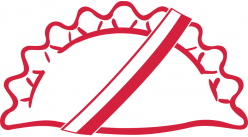Meaning:
Lit. “the Wine brand of wine” meant ironically. The expression comes from this product that has been the weapon of choice of winos in communist Poland. After the collapse of the system, various brands of fruit wine remained their favourites and quite often also source of first serious hangovers for Polish teenagers. The original “brand” is no longer available but hundreds of local variants have blossomed in the meantime, some of them gaining a cult following. What they have in common is: a) all being produced out of fruits, mainly apples b) alcohol volume of around 18% c) contain high levels of sulphur.
